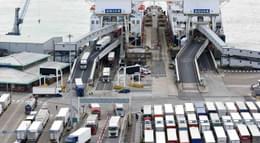
The failure of Thomas Cook
Liberal Democrat MEP, Dinesh Dhamija provides analysis on why Thomas Cook ended up being in a position of company liquidation, by providing personal experiences.
Why did Thomas Cook fail after 178 years in business? This is the question everyone is asking. It's probably fair to say that lots of factors played into the institution's demise – Brexit, the climate crisis, bad management, misguided hopes of a government bailout – but these issues only compounded a much more fundamental problem. Thomas Cook failed to grasp the cardinal rule for survival in the travel industry – the need to constantly change and evolve with the times.
When I started Dabin Travel (which later became eBookers) back in 1980, I was told that people only wanted to book their holidays through a travel agent. I knew that this would change with the internet. I always had faith in the consumer's knack for adapting to whatever the market had to offer, and more importantly, whatever could save them the most money.
The rise of the digital marketplace severely disrupted the travel industry with companies like mine – eBookers – ascending to the top. To me the reason seemed obvious. Booking online significantly cut costs for the consumer. Even if it meant they had to take a DIY approach to searching for hotels, restaurants and booking flights. The task of entrepreneurs like me was to work out how to present this new model. I decided to take my travel business online in 1996 – one of the first in the industry to do so. Yes, Thomas Cook faced collapse back in 2011 but managed to navigate a path to recovery thanks to their lenders. Sadly, this left them shackled. They have had to pay out £2bn in interest since, which meant that more than a quarter of the money it charges for the 11 million holidays it sells every year goes into the pockets of lenders.
Their inability to recover over the last 8 years is most likely due to bad management. Twelve Thomas Cook bosses took home around £20 million over the last 5 years despite the debt pile. The market is also very fragile at the moment. A weak sterling combined with the threat of a 31st October no-deal Brexit deadline, has made consumers cautious. I think we need to think about what's been happening in the travel industry over the last 20 years and how Thomas Cook have failed to adapt to the changes.
My instincts tell me that Thomas Cook was just incredibly bad at marketing. I think customers at best saw little difference between them and companies like Tui, and at worst, saw them as followers not innovators. Thomas Cook made some tentative moves towards change. There was talk of buying hotels, rather than just rooms, like EasyJet. But they failed to offer anything substantially different which would lower the costs of a holiday. Data from Kantor's BrandZ research shows that while Thomas Cook was well-known, it had little in the way of competitive edge.
I've noticed plenty of commentators have been comparing Thomas Cook with AirBnB and lastminute.com in their analysis. This comparison doesn't make sense to me. The package holiday market – families and older couples – aren't interested in DIY holidays. They still want the ease of a package deal. This brings the matter down to marketing and brand association.
I suspect the company lasted as long as it did on bookings from older consumers who remembered the company from their heyday, but it had no resonance with a younger market. Yes, they moved operations online, but were they making any savings from the move? After all, they still had bricks'n'mortor back offices. More importantly, did consumers recognise them as an online brand? I don't think so.
I sold eBookers in 2004. And now I'm a politician. But once an entrepreneur always an entrepreneur, and the travel industry will always fascinate me. Those within it are constantly adapting. They rely on change, innovation and development. The failure of Thomas Cook was once a fantastic brand and the gem of the industry. It could have remained so, but it failed in it's most important task – to change for their customers.















